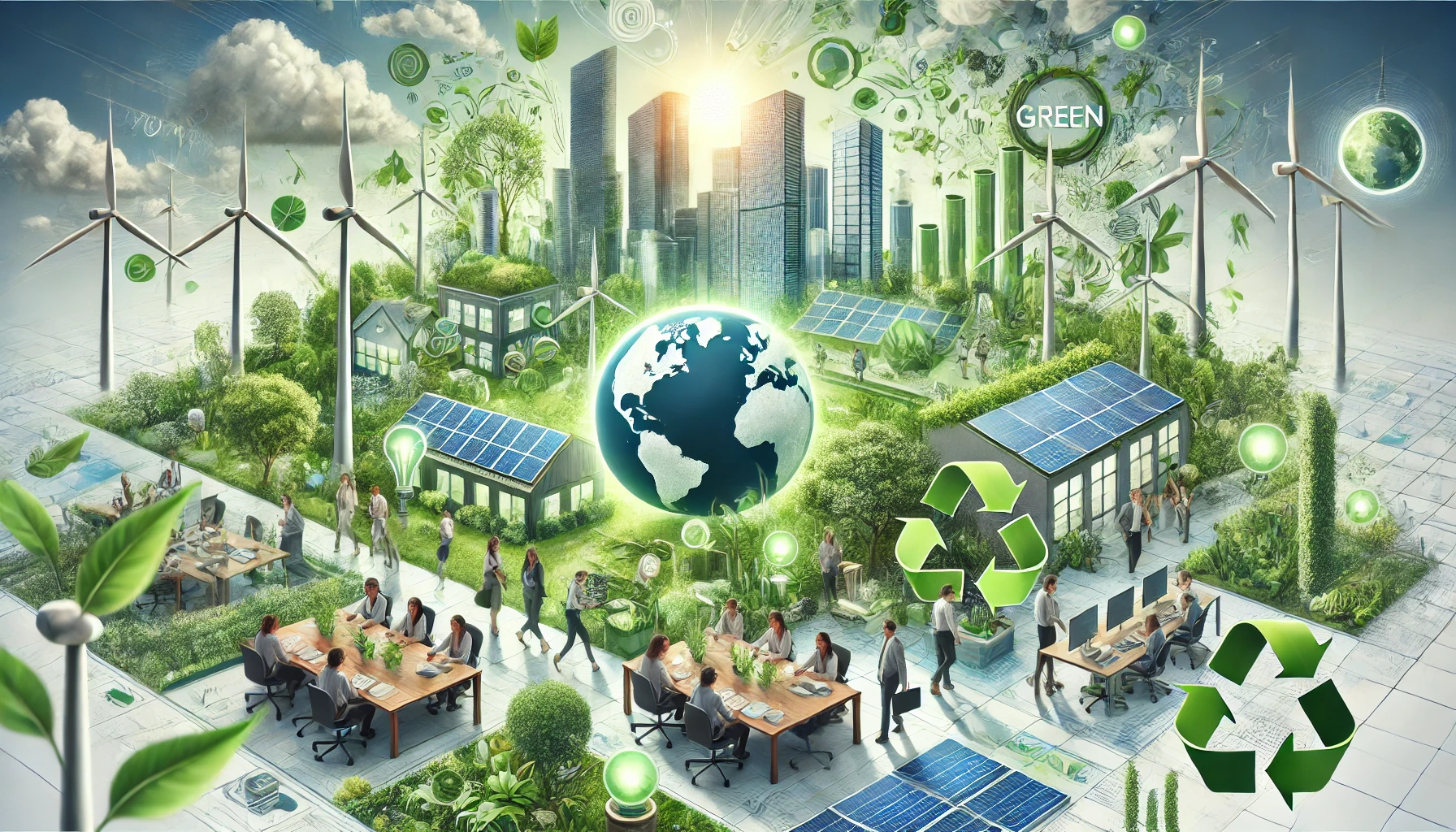Sustainability in Business: Why Going Green is the Future

In today’s rapidly evolving world, businesses are being called upon to play a pivotal role in addressing environmental challenges. Sustainability is no longer a buzzword; it is a necessity for survival and growth in the modern market. Going green is not just about protecting the planet—it’s about creating value, fostering innovation, and building resilience. Here’s why sustainable business practices are becoming indispensable and how they can shape the future of commerce.
1. The Environmental Imperative
Climate change, resource depletion, and pollution have reached critical levels, posing significant risks to ecosystems, communities, and economies. Businesses, as key drivers of resource use, have a responsibility to mitigate their environmental impact. Adopting sustainable practices such as reducing carbon emissions, minimizing waste, and using renewable energy can help curb the environmental crisis.
Key actions include:
- Implementing energy-efficient processes.
- Switching to sustainable raw materials.
- Embracing circular economy principles to reduce waste.
By addressing these challenges proactively, businesses can contribute to global environmental goals while securing their own long-term viability.
2. Consumer Demand for Sustainability
Consumers are increasingly prioritizing sustainability in their purchasing decisions. Studies show that a significant percentage of buyers are willing to pay a premium for eco-friendly products. Younger generations, particularly Millennials and Gen Z, actively seek brands that align with their values and demonstrate a commitment to the planet.
This shift in consumer behavior presents a unique opportunity for businesses to:
- Differentiate themselves in competitive markets.
- Build brand loyalty through transparent and ethical practices.
- Expand market share by catering to environmentally conscious audiences.
3. Financial Benefits of Going Green
Sustainability is often perceived as an added expense, but in reality, it can lead to substantial cost savings and financial gains. Investing in energy-efficient technologies, for instance, can lower operational costs in the long run. Similarly, reducing waste and optimizing supply chains can improve efficiency and profitability.
Additionally, many governments offer incentives for sustainable initiatives, such as tax breaks, grants, and subsidies. Businesses that embrace green practices can also attract investors who prioritize environmental, social, and governance (ESG) criteria, opening new avenues for funding.
4. Regulatory Compliance and Risk Mitigation
Governments and international organizations are introducing stricter environmental regulations to combat climate change and protect natural resources. Businesses that fail to adapt risk facing penalties, legal challenges, and reputational damage.
By staying ahead of regulatory changes and adopting sustainable practices, companies can:
- Ensure compliance with environmental laws.
- Reduce exposure to supply chain disruptions caused by resource shortages.
- Enhance resilience in the face of changing market dynamics.
5. Innovation Through Sustainability
Sustainability drives innovation by encouraging businesses to rethink traditional practices and develop creative solutions. Green technologies and eco-friendly products are on the rise, with companies exploring new ways to meet consumer demands while minimizing environmental impact.
Examples of sustainable innovations include:
- Biodegradable packaging materials.
- Renewable energy solutions such as solar and wind power.
- Digital tools for tracking and reducing carbon footprints.
These advancements not only benefit the environment but also position businesses as leaders in their industries.
6. Employee Engagement and Recruitment
A company’s commitment to sustainability can significantly impact employee morale and recruitment efforts. Many professionals today seek workplaces that align with their personal values, and sustainability initiatives can enhance job satisfaction and attract top talent.
Implementing green practices in the workplace—such as recycling programs, green office spaces, and volunteer opportunities for environmental causes—fosters a sense of purpose among employees. This, in turn, improves productivity, retention, and overall organizational culture.
7. The Competitive Advantage
Sustainability is becoming a critical differentiator in the business world. Companies that prioritize green practices often enjoy a stronger reputation, greater customer loyalty, and increased investor confidence. Conversely, businesses that ignore sustainability risk falling behind their competitors.
To stay competitive, companies should:
- Set measurable sustainability goals and report on progress.
- Collaborate with eco-friendly suppliers and partners.
- Invest in marketing campaigns that highlight their commitment to the environment.
8. Building a Better Future
The ultimate goal of sustainability in business is to create a better future for all. By integrating environmental, social, and economic considerations into their strategies, businesses can contribute to a more equitable and resilient global economy.
Sustainable practices also align with the United Nations Sustainable Development Goals (SDGs), providing a framework for addressing global challenges such as poverty, inequality, and climate change. Companies that actively support these goals not only enhance their impact but also inspire others to follow suit.
Conclusion
Going green is no longer optional—it is the future of business. Embracing sustainability enables companies to reduce their environmental footprint, meet consumer expectations, unlock financial benefits, and foster innovation. It also strengthens resilience against regulatory and market changes while building trust among stakeholders.
By making sustainability a core part of their operations, businesses can not only thrive in the present but also shape a more sustainable and prosperous world for generations to come. Now is the time to act, innovate, and lead the way toward a greener future.



